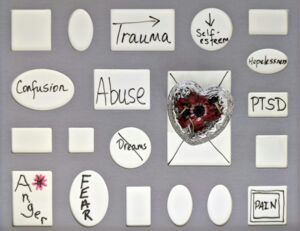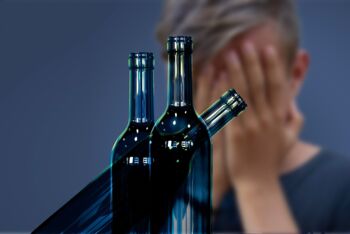Drugs, substance abuse and legal highs
Stay away from drugs...Be aware of the risks
Drug and legal highs, often referred to as substance abuse can have significant effects on young people and impact negative on their future. Engaging in drug abuse can result in a range of irreversible effects on mental and physical health, education, family, friendships and life opportunities.
Remember it's OK to say no to drugs and legal highs; Drugs and legal highs affect people differently. Your experience and reaction will differ from your peers. Prioritise yourself and your well-being.

If you are offered Drugs or Legal Highs Educate yourself - Learn about the risks and consequences of drug use so you can make informed decisions
how to DEAL WITH DRUG RELATED PEER PRESSURe
Confide in someone you trust - Talk to a trusted adult such as a parent, teacher or counsellor about your concerns and seek guidance and support.
Be assertive - Politely but firmly say no when offered drugs you have the right to make your own choices.
Practice self-care - Take care of your physical and mental health by engaging in activities that bring you joy and fulfilment and seek help if you are struggling.
Find supportive friends - Surround yourself with friends who share your values and support your decision to stay drug free.

Have an exit plan - Plan for situations where you might encounter drugs and have an excuse ready to leave if needed.

What are legal highs?
Legal highs, also known as new psychoactive substances (NPS), are synthetic drugs designed to mimic the effects of illicit substances like cocaine, cannabis, and ecstasy. Here are some key points about legal highs:
-
Composition: Legal highs contain various chemical ingredients. Some of these components are illegal, while others are not. They produce effects similar to those of illegal drugs but are chemically and structurally different.
-
Forms and Sales: Legal highs are sold in various forms, including powder, pills, liquids, capsules, and smoking mixtures. They are often marketed as “plant food,” “bath salts,” or “incense” because they cannot be labeled for human consumption. Head shops often sell these substances alongside drug paraphernalia.
-
Effects: Legal highs can be stimulants (energizing), sedatives (relaxing or euphoric), or psychedelics (altering perceptions and causing hallucinations).
-
Risks: The chemicals in legal highs have not been tested for safety, so users cannot predict the outcome. These substances can cause paranoia, seizures, coma, and even death. Risks increase when legal highs are combined with alcohol or other psychoactive drugs. Addiction is also a concern.
-
Legislation: The Psychoactive Substances Act (introduced in May 2016) makes the production, distribution, sale, and supply of legal highs an offense punishable by up to seven years in prison.
Remember that just because a substance is legal to possess doesn’t necessarily mean it’s safe. If you or someone else needs urgent help after taking drugs, call 999 for an ambulance. Stay informed and prioritize your well-being!
Physical health risk: Both illicit drugs and legal drugs can lead to adverse physical health effects such as heart problems, respiratory issues and damage to organs like the liver and kidneys.
Mental health risk: This can increase the risk of mental health disorders like anxiety, depression, psychosis, and cognitive impairment especially in developing brains.
Addiction: Young people are particularly vulnerable to developing addiction due to the heightened neuroplasticity of their brain. Drug and legal highs can lead to dependence and addiction which can have long term consequences.
Impact on Education and Employment: Substance use can negatively impact academic performance, attendance, and focus, potentially affecting future educational and employment opportunities.
Social and relationship problems: Substance use can strain relationships with family and friends leading to social isolation and difficulties in forming healthy connections.
Legal consequences: Involvement with drugs even legal highs can result in legal trouble including criminal charges and a criminal record which can have long repercussions.
Risk taking behaviour: Drug use can lead to engaging in risky behaviour such as unprotected sex, driving under the influence, and involvement in criminal activities.
It is crucial that young people be aware of this risk and sick support and guidance from trusted adults healthcare professionals or support services if they are struggling with substance abuse.
where to get HELP AND SUPPORT
Hertfordshire: Support & Advice in Hertfordshire for young people :: Hertfordshire and West Essex Healthier Together (hwehealthiertogether.nhs.uk)
National: Drugs: Talk to Frank or call 0300 123 6600 (24 hours a day, 365 days a year).
Drugs and Alcohol support: Drugs & Alcohol | Mental Health | Guide For Parents | YoungMinds

